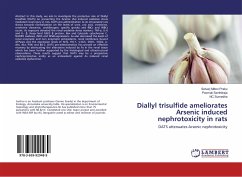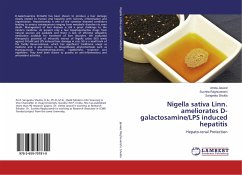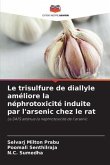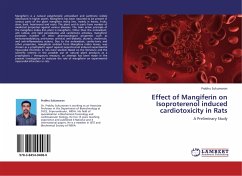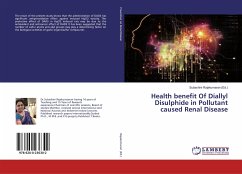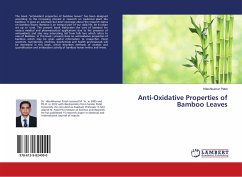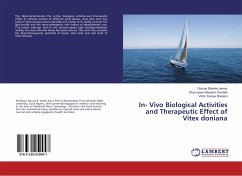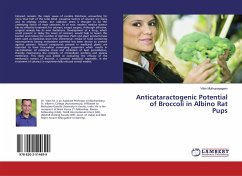Abstract In this study, we aim to investigate the protective role of Diallyl trisulfide (DATS) on preventing the Arsenic (As) induced oxidative stress mediated renal injury in rats. DATS pre-administration to As intoxicated rats shows towards normalization on the levels of urea, uric acid, creatinine, creatinine clearance, urobilinogen, specific gravity and RBCs and WBCs count. As exposure elevated the renal oxidative stress markers, TNF- , IL-6 and IL- beta, Keap-1and GSK3 beta protein, Bax and Cytosolic cytochrome C, NADPH oxidases, iNOS and NF B expressions. As also decreased the levels of renal enzymatic and non enzymatic antioxidants, renal membrane bound ATPases and the expression levels of Nrf2, HO-1, Gamma-GCS, SOD1, SOD2, p-Akt, Akt, PI3K and Bcl-2. DATS pre-administration has proved an effective recovery by attenuating the alterations induced by As in the renal tissue which has been further supported by the histological and ultrastructural observations. These results suggest that DATS may be a prospective nephroprotective entity as an antioxidant against As induced renal oxidative dysfunction.
Bitte wählen Sie Ihr Anliegen aus.
Rechnungen
Retourenschein anfordern
Bestellstatus
Storno

